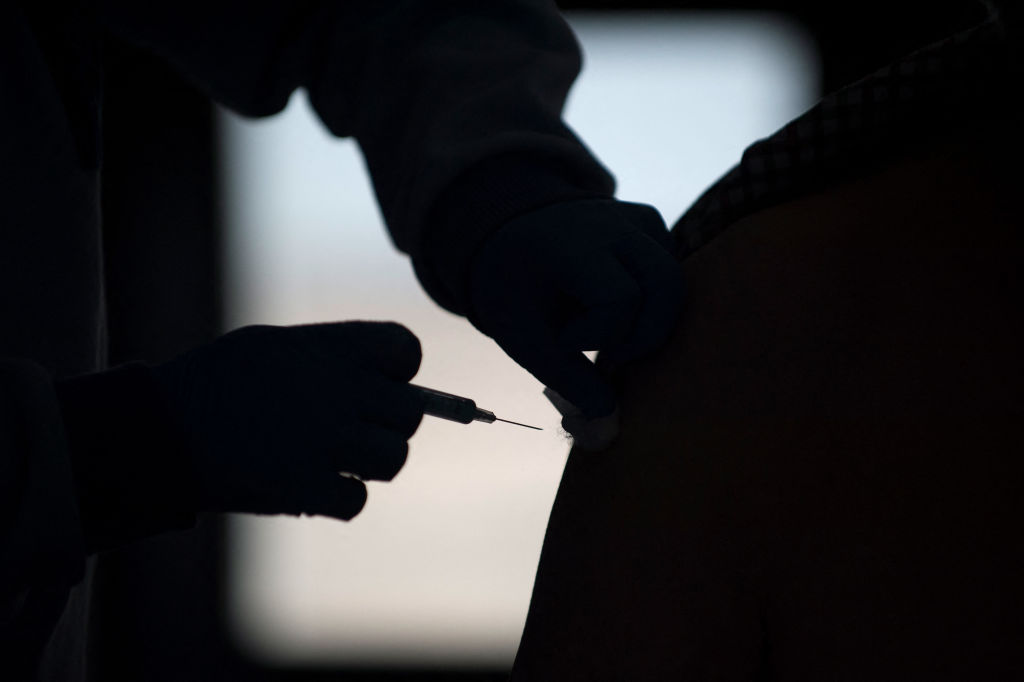The important thing is that more vaccines are made 6:29
(CNN Spanish) -
If you are part of the more than 588 million people who have already received at least one dose of the covid-19 vaccine, watch out: we leave you here 5 mistakes that you should avoid to continue taking care of yourself and those of you surround.
1 - Thinking that you are 'fully vaccinated' after the second puncture
You've probably heard a family member or friend say “I'm already vaccinated” after receiving the second dose of vaccines that require two doses, such as those from Pfizer / BioNTech, AstraZeneca or Moderna, or after the single dose of Johnson & Johnson.
However, remember: you are not considered "fully vaccinated" until two weeks after completing the vaccination schedule.
Exclusive tour inside the Pfizer vaccine factory 3:50
As explained by the Centers for Disease Control and Prevention (CDC, for its acronym in English), "generally the body takes two weeks after vaccination to generate protection (immunity) against the virus."
Therefore, if you are already preparing to resume certain activities, keep these deadlines in mind.
2 - Thinking that you can no longer get it
"Some people who are fully vaccinated against COVID-19 may get sick because the vaccines are not 100% effective," explains the CDC.
The possibility is small, but it exists, and this implies that in some cases you can become infected.
Does the vaccine make you immune to covid-19?
1:11
According to studies conducted under real-world conditions, after two doses the Pfizer and Moderna vaccines are 90% effective in preventing infections, even asymptomatic ones.
The good news is that, in case of contracting the virus, the vaccine can help you not get seriously ill, explains the institution.
advertising
One note: The CDC says current information suggests that the vaccines being used in the United States (which have emergency clearance from the Food and Drug Administration) "offer protection against most variants."
However, they warn that "some variants could cause some people to get sick even with the full vaccine."
What about the other vaccines?
AstraZeneca's, Sputnik V and Sinovac's, which are being applied in many Latin American and / or European countries, have different levels of efficacy in preventing infections.
As well as those in the United States, none is 100% effective, therefore, you can also catch it after receiving it.
3 - Do not isolate yourself if you have symptoms
You are now "fully vaccinated" (that is, the appropriate time has passed) and you start to feel symptoms of Covid-19.
A few months ago you would have suspended any activity to isolate yourself, but now, since you gave yourself both doses, perhaps you are off guard.
Error.
The CDC says that any vaccinated subject with symptoms should "be isolated and clinically evaluated."
And this especially if you were exposed to a person with covid-19 or with the suspicion of being infected.
Study: Covid-19 Symptoms May Persist 6 Months 0:57
On the contrary, if you were with someone with coronavirus but have no symptoms, you do not need to isolate yourself or take a test.
There is one exception to this: The agency explains that if you live in a "group setting," for example, "a correctional or detention center or group home," you do have to get tested even if you don't have symptoms.
4 - Stop washing your hands frequently
We may be embarrassed to admit it, but many of us have been lax when it comes to hand washing.
And no, it's not a perception: A new study done at a Chicago hospital found that the level of hand washing dropped to pre-COVID levels.
Added to this is a January survey that showed that 57% of those interviewed claimed to wash their hands six or more times a day, compared to 78% who said they washed their hands frequently when the same survey was conducted in the early days of the pandemic.
The correct way to wash your hands, according to WHO 3:38
Being fully vaccinated is no reason to stop washing your hands frequently when you are indoors.
The CDC explains that "in closed public spaces it is unlikely to be able to know if other people are vaccinated or if they are at greater risk of becoming seriously ill from COVID-19."
For this reason you should continue to wash your hands frequently, in addition to using the mask (at least when required) and covering yourself when you are going to cough.
With information from Sandee LaMotte and Jen Christensen.
Editor's Note:
This note was originally published in April 2021 and was updated in June 2021.
Covid-19 Coronavirus Vaccine









/cloudfront-eu-central-1.images.arcpublishing.com/prisa/KMEYMJKESBAZBE4MRBAM4TGHIQ.jpg)


